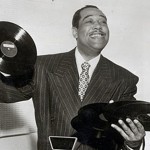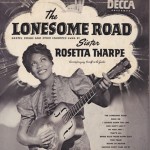
Let Yourself Go: The Triumph of Popular Music How we listen and why we listen to music.
Special thanks to editorial board member Greil Marcus and executive committee member Chakravarthi Narasimhan.

Special thanks to editorial board member Greil Marcus and executive committee member Chakravarthi Narasimhan.

Until I could find an apartment, I rode the No. 6 bus up and down Highway 99 most of the night, from downtown to Aurora Village, listening to muffled, skewed robotic drum beats of fellow travelers from behind the earphones of turned-up Walkmans, looking out into the dark. No, scratch that, looking at myself in the reflection of myself on bus windows in the dark.

The complicated relationship between girls and music, and the mobility that it both affords and denies them, is only legible through conversations with girls. As it turns out, the music of Katy Perry makes that relationship most legible.

The Common Reader on popular music

There may be songs whose histories are uncorrupted or wholly unrecoverable. “(The) Lonesome Road” is not among them. The road that everybody, including “E.V. Body,” in this story tredges on is crowded with two-way traffic: some stretches are dusty, others are paved with Tin Pan Alley gold or earnest populist intentions, and it is constantly being dug up and laid anew.

On Twitter the entire point is that somebody is watching you. Success is measured in followers. No wonder Sly Stone never seems at home there, and never alights there too long.

If Pokey LaFarge is post-nostalgic, it is only partway. If anything, his music and personae expose the extent to which older, simpler virtues—for worse and for better—survive in St. Louis in so many ways.

John Henry is fighting an age old battle. All of us are. Something will always come along and render us useless.

Despite a mountain of insecurities and sheer craziness, Peggy Lee remained undaunted. Engaging, and at times challenging, she made remarkably sophisticated music well into the 1980s, refusing to be an oldies act. But perhaps her greatest claim to public attention was that the blonde, North Dakota-born singer sounded black.

The financial distress, or lack of distress, of musicians has nothing to do with the purpose of copyright. We, wild anti-copyright theorists, have now been joined by many sober practitioners in our analysis pointing out the real issues.

For a decade in which rock music was reaching its zenith as a profitable business, the 1970s, it is staggering to consider the sheer number of risks Bowie took, without any hint or appearance that he was risking anything at all.

There was something about the music that evening, at a party in her honor, that immediately captured Bessie Smith’s attention. As she entered the party with a few of her girlfriends, Smith remarked in classic fashion, “The funk is flyin’.”

If Pokey LaFarge is post-nostalgic, it is only partway. If anything, his music and personae expose the extent to which older, simpler virtues—for worse and for better—survive in St. Louis in so many ways.

Bourbon Street: A History takes a single street as its focus to reveal the multiple overlaps and interrelations of different cultures and different histories. This method has its costs, at times exchanging topical breadth for depth.

Marcus’s chosen form, media’s coveted “listicle,” is of the moment. But, at first glance, his subject matter is not. Who even talks about “rock ’n’ roll” anymore?

The facts of Bernstein’s story—the scope of his talents, the velocity of his ascent—still amaze. His natural gifts were embarrassingly rich: ferociously intelligent, musical, and social in equal measures. But Bernstein was also lucky—in the right place at the right time again and again and again.